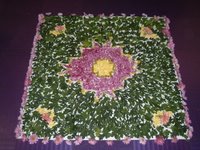The story begins to unfold
While discussing a case on Sears, Roebuck and Co. in the lecture today, something on the slide on screen caught my attention. It was a simple statement: “…….x% increase in associate satisfaction is related to a y% increase in customer loyalty, which in turn is associated with a z% increase in EBIT……” At that moment, I was hit by a thunderbolt of enlightenment. Is that true? Have they applied the tools of Statistics? Like Regression, for example? I was beginning to see where Strategic Decision Sciences (SDS) – another course in our Term 1 – was making its presence felt. In my career I had hardly seen the application of regression while many such claims were stated by me as well as other managers.
This brainwave opened up a chain of thoughts. My mind was running, the fastest ever during my days in Cranfield so far.
The lecturer continued, “…..confidence in this data was ….. computed 30% to 70% of its executive compensation from these measures….”
And my mind continued to speak to me, “THAT’S ECONOMICS!” And we studied this only yesterday, something under X-inefficiencies where the module mentioned that managers in companies do not maximise, they only try to achieve a satisfying level of performance that the shareholders desire.
Gosh! All of this does make sense after all. And it took me less than a split second to figure it out (although this second took a few weeks to come by).
This weird experience just wouldn’t stop. The next lecture was Accounting and we discussed a case study on Management Accounting. Somewhere I felt an eerie silence in the lecture room. But I could hear a noise overshadowing the silence. This was the “clickety-click, clickety-click” sound of our minds at work. A few moments later, there was a mention of how the manager of the company (in the case) had delivered a favourable variance against the budget and maybe, it was driven by performance incentives that the company could be giving to its managers. Again Economics floated back in my mind. Did this manager maximise profits or was he focussed on his incentive?
For one, MBA may not make me an expert in functional areas, but it does teach me how to ask the right questions. And I remembered the words of Dr John Mapes – the faculty who interviewed me during admission process – “we do not teach management, we teach how to manage!”
This intertwining of the various courses is the exact overarching objective of Cranfield MBA. And I am glad that I am beginning to catch the unfolding story. Much to my own surprise, I have proceeded much ahead from the prologue. And I had never realized this till now.



